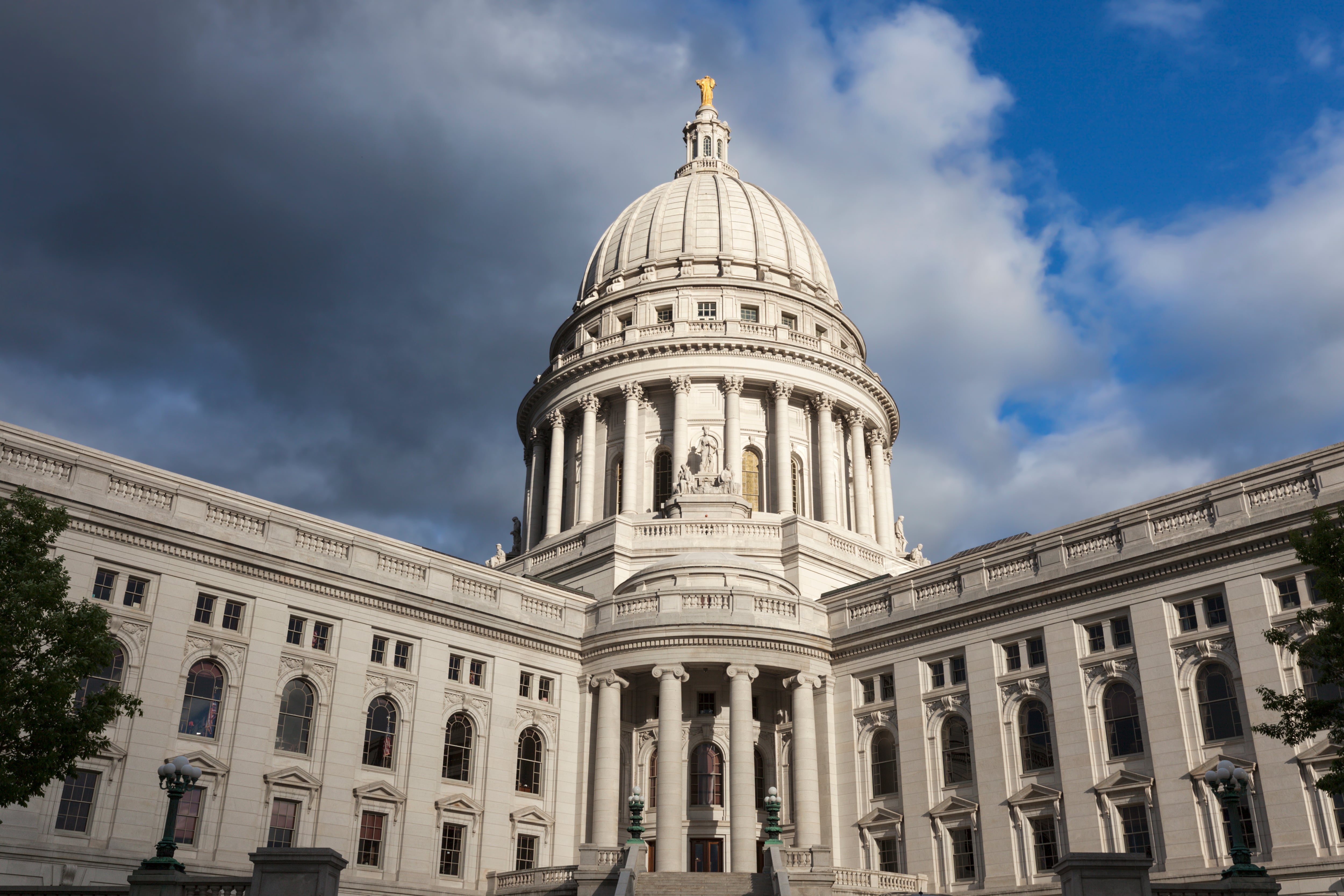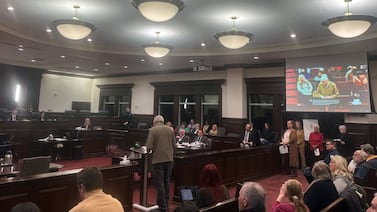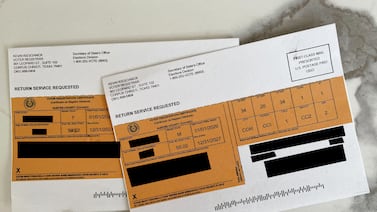Votebeat is a nonprofit news organization reporting on voting access and election administration across the U.S. Sign up for Votebeat Wisconsin’s free newsletter here.
Update, Dec. 12, 2024: A federal judge dismissed the Republican Party of Wisconsin lawsuit on Thursday, saying there’s no controversy over the main issue in the case. Both the GOP and the defendants agree they should cast electoral votes for President-elect Donald Trump on Dec. 17, in compliance with a federal law, not the Dec. 16 date dictated under a state law.
The Republican Party of Wisconsin filed a lawsuit Friday to resolve a discrepancy between state and federal law directing when appointed presidential electors must meet to cast Electoral College votes.
State law requires presidential electors to meet on Dec. 16 this year, but a federal law passed two years ago calls for them to meet on Dec. 17. The state GOP is calling on a U.S. District Court of Western Wisconsin judge to enforce the federal requirement and strike the state one.
“The presidential electors cannot comply with both requirements,” the lawsuit states.
Resolving the current conflict is key to avoiding the state’s electoral votes getting challenged or contested in Congress, the state GOP states.
The lawsuit highlights the Legislature’s failure to pass a bill that would have brought Wisconsin in line with the new federal law. That inaction, the state GOP says, “led to the current conflict between the federal and state statutes.”
The lawsuit is filed against Gov. Tony Evers, Attorney General Josh Kaul, and Wisconsin Elections Commission Administrator Meagan Wolfe.
The GOP is asking for the federal court to declare the current state law requirement — for the electors to meet on the first Monday after the second Wednesday in December, as opposed to the federal law’s requirement to meet on the first Tuesday following the second Wednesday — unconstitutional and unenforceable. Given the tight timeline, it’s seeking a hearing “as soon as the Court’s calendar allows.”
Spokespeople for the Wisconsin Elections Commission and Evers declined to comment for this story.
Generally, federal law supersedes state law if there’s a conflict between the two, said Bryna Godar, a staff attorney at the University of Wisconsin Law School’s State Democracy Research Initiative. Under the current, conflicting laws, electors this year definitely have to meet on Dec. 17, but it’s less clear what they should do on Dec. 16, she told Votebeat in May.
The new designated day arose as a result of the new federal law, commonly called the Electoral Count Reform Act. Congress designed the law in 2022 to prevent the post-election chaos that then-President Donald Trump and his allies created after the 2020 election, which culminated in efforts to send fake electoral votes to Congress, block certification of legitimate electoral votes, and then storm the Capitol on Jan. 6, 2021.
The new federal law sets specific schedules for certifying election results and casting electoral votes. It cleared up ambiguities contained in the previous version of the law, which was enacted in 1887 but never updated until two years ago.
As of mid-October, 15 states had updated their laws to comply with the Electoral Count Reform Act, according to the National Conference of State Legislatures. A Wisconsin proposal to bring the state in line with the new federal law passed the Senate nearly unanimously in February. But it never received a vote in the Assembly.
“It would have been beneficial if Wisconsin had also done that,” Godar said.
Scott Thompson, a staff attorney at the liberal-leaning legal group Law Forward, said the Legislature knew about this problem for over a year but chose not to resolve it with a simple fix.
“This eleventh hour lawsuit merely confirms that our state legislature needs to stop peddling election conspiracy theories and start taking the business of election administration seriously,” he said.
Wisconsin Republicans were among those who sent documents to Congress in December 2020 falsely claiming Trump won the state. Trump won the state in 2024. The Wisconsin fake electors were subject to a civil lawsuit, and there’s an ongoing criminal case against their attorneys.
Alexander Shur is a reporter for Votebeat based in Wisconsin. Contact Alexander at ashur@votebeat.org.



